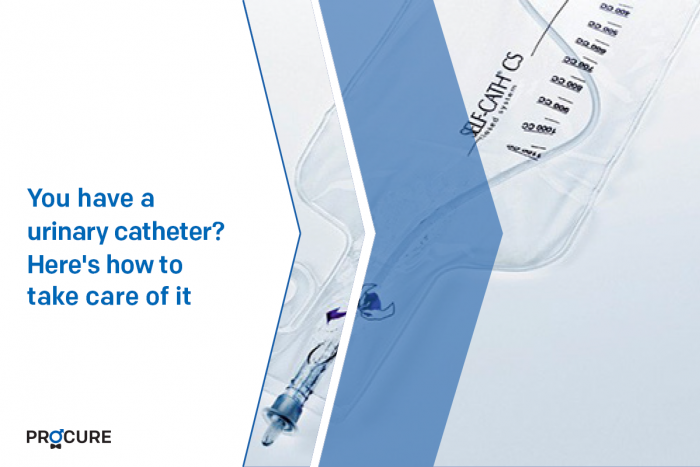You are wearing a urinary catheter after your radical surgery? This apparatus is a little uncomfortable, we agree, but it is invisible under your clothing and therefore should not be too embarrassing or annoying. You will have 2 drainage bags (or collector) and a catheter stabilizer. The catheter stabilizer holds the urinary tube in place and keeps it securely attached to your leg. The small bag is for the day and the larger one is for the night. Normally, you will wear a urinary catheter for about a week to ten days.
Before you leave the hospital, the nurse will teach you how to take proper care of your catheter and will make an appointment with your CLSC to have it removed at the prescribed time, if it is not removed by your urologist. This procedure is painless and lasts only a few seconds.
How to take care of your catheter at home
If the nurse has not explained to you how to take care of it, here is an explanatory information sheet with photos which could be very useful. There is also a whole section on our website on how to look after a catheter at home after radical surgery.
What you need to know
- You can take a shower with your catheter and drainage bag unless told otherwise. This indication would be because you have a drain that helps the incision heal if you have had open surgery (the one with staples). Click here to view how to take care of a drain after surgery.
- Keep the collection bag lower than your bladder in order to prevent reflux.
- If there is no urine in the collection bag after several hours, make sure that the drainage tube is not bent or squished.
- Your urine may be cloudy in the beginning but will be back to normal after a few weeks.
- It is normal to have blood in the urine after this surgery. If you see blood in your urine, drink more and decrease your activity until your urine clears up. If you have done this and still see no change, call your surgeon’s office.
- Always make sure that urine continues to drain into your bag.
- If the catheter slips out, go to the Emergency room.
Take the time to visit each of our pages on this website, as well as our YouTube channel, in order to get familiar with the disease with our expert lectures, our section on available resources, the support that is offered to you.
Do you have any questions or concerns? Above all, do not hesitate. Contact us at 1 855 899-2873 to discuss with a nurse specializing in uro-oncology. It’s simple and free, like all our services.
A webinar that might interest you (in French only)
Urinary, sexual or intestinal problems? with Dr. Thierry Lebeau – September 2020
Pages of our site that might interest you
Want to know more? Just click on one of the links below.
Treatment options
Urinary problems?
Resources for you
PROCURE news that may interest you
Each week, we publish a blog article. Here are a few for you.
6 tips for dealing with urinary incontinence
Blood in urine – what does that mean?
What your urine can tell you
Written by PROCURE. © All rights reserved – 2021



 ADDITIONAL RESOURCES
ADDITIONAL RESOURCES

